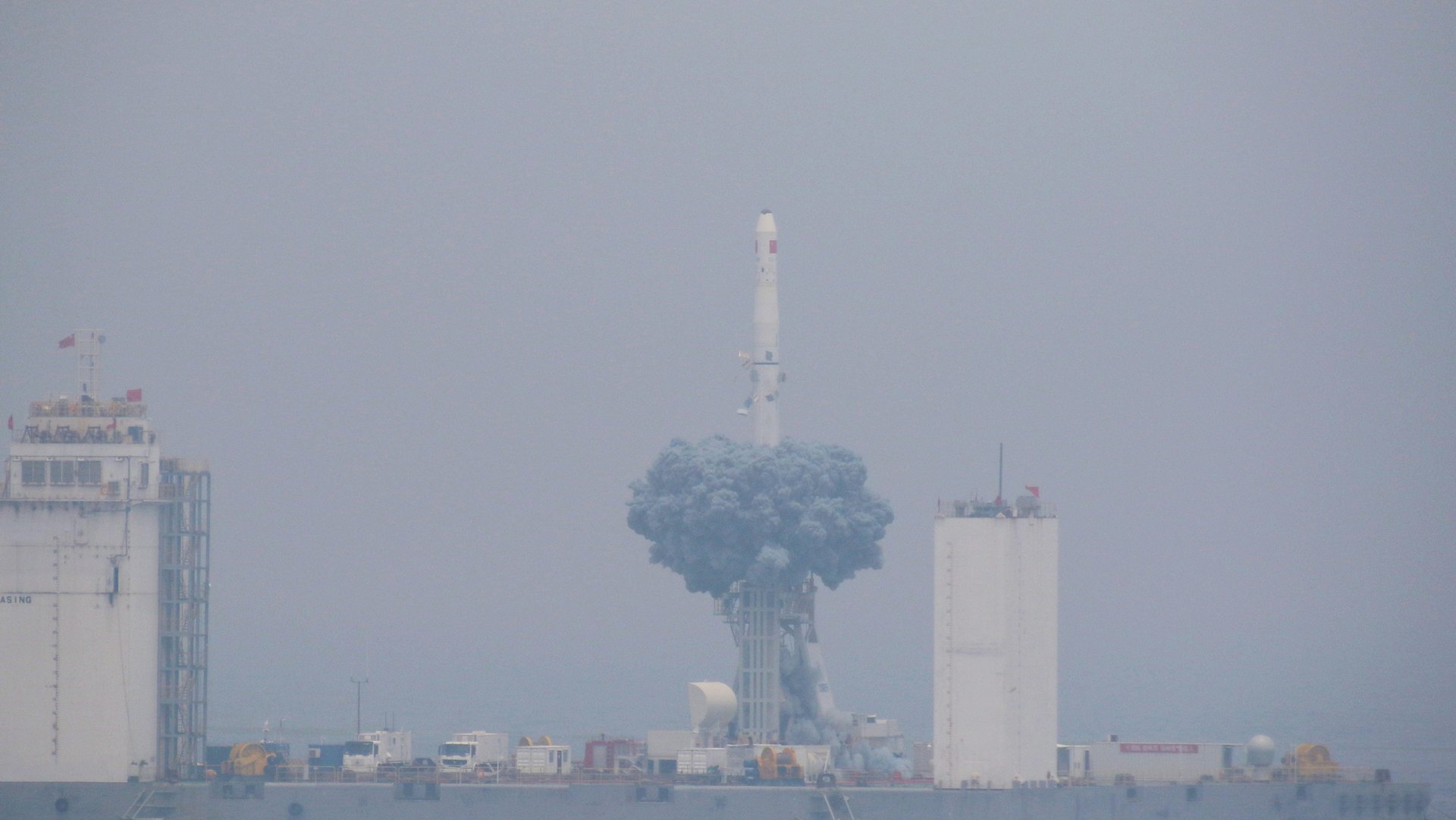China’s carmakers are now sponsoring rocket launches
At least two Chinese carmakers are sponsoring rocket launches this year, claiming the partnerships will pave the way for technological advances for their automobiles—though it’s unclear exactly what kind of liftoff the companies hope to achieve.


At least two Chinese carmakers are sponsoring rocket launches this year, claiming the partnerships will pave the way for technological advances for their automobiles—though it’s unclear exactly what kind of liftoff the companies hope to achieve.
The latest—and possibly first—example was China’s first rocket launch from sea this past week. WEY, a luxury sports utility vehicle brand that’s part of Great Wall Motors, sponsored the launch of the CZ-11 WEY rocket, part of the national Changzheng, or Long March, rocket program. WEY claimed (link in Chinese) it was the first automobile firm to partner with China’s aerospace industry, and that this was also the first time a corporate brand was included on a rocket from the state-owned rocket builder, China Academy of Launch Vehicle Technology.
The launch from the Yellow Sea took place on Wednesday (June 5) around 12:06 pm local time, state media Xinhua reported. The four-stage solid propellant rocket carried seven satellites into orbit, including one for measuring sea surface winds for typhoon forecasting. Maritime launch capability adds another tool in China’s toolbox, says Jonathan McDowell, an astronomer at the Harvard-Smithsonian Center for Astrophysics, even though it doesn’t represent a huge step forward in terms of technical skills.
Great Wall Motor, China’s biggest maker of SUVs and pick-up trucks, didn’t respond to queries about the cost of the sponsorship and what it hopes to achieve through the partnership. Prior to the launch, the company’s vice president Liu Yan said both China’s space achievements and WEY have become “shining symbols of China’s industrial power (link in Chinese).” WEY has also set up a joint research institute with the rocket builder.
Launches typically cost several millions of dollars, but it’s unlikely that WEY would have paid the entire amount.
“A Long March 11 launch cost is around $5.3 million, and the sponsorship would be lower than that,” said a China-based industry watcher who declined to be named.
Blaine Curcio, the founder of Hong Kong-based space business consulting firm Orbital Gateway Consulting, said that this type of partnership between major space state-owned enterprises and large private companies could be an interesting way to develop China’s “civil-military integration.” China has been guiding private investment and technology to further serve defence purposes, while also hoping to help the country advance technologically.
Also last week (link in Chinese), Changan Auto passenger car brand Oushang said it will help private rocket firm iSpace launch a rocket named after it in July (link in Chinese). It said it’s responding to China’s 2014 call to businesses to help the country develop a commercial space industry. Pointing to the example of Huawei, the Chinese telecom equipment provider that was cut off from using American chips and software amid China-US trade tensions, Changan made the point that the country must become an independent technology power.
“Changan Oushang hopes to bring substantial technology transmission through participation in the private rocket launch,” Changan said in the statement. The company said it would give out 10 million yuan ($1.5 million) to consumers if the launch succeeds—a big if since no Chinese private space company has been able to launch a rocket into the orbit, though two have tried.
Changan didn’t immediately respond to queries about the joint effort and how much it’s spending on the launch.
The rocket launch sponsorships come as the world’s largest auto market began contracting for the first time since1990—such publicity stunts might help fuel sales in a competitive market, whether they advance automobile technology or not.